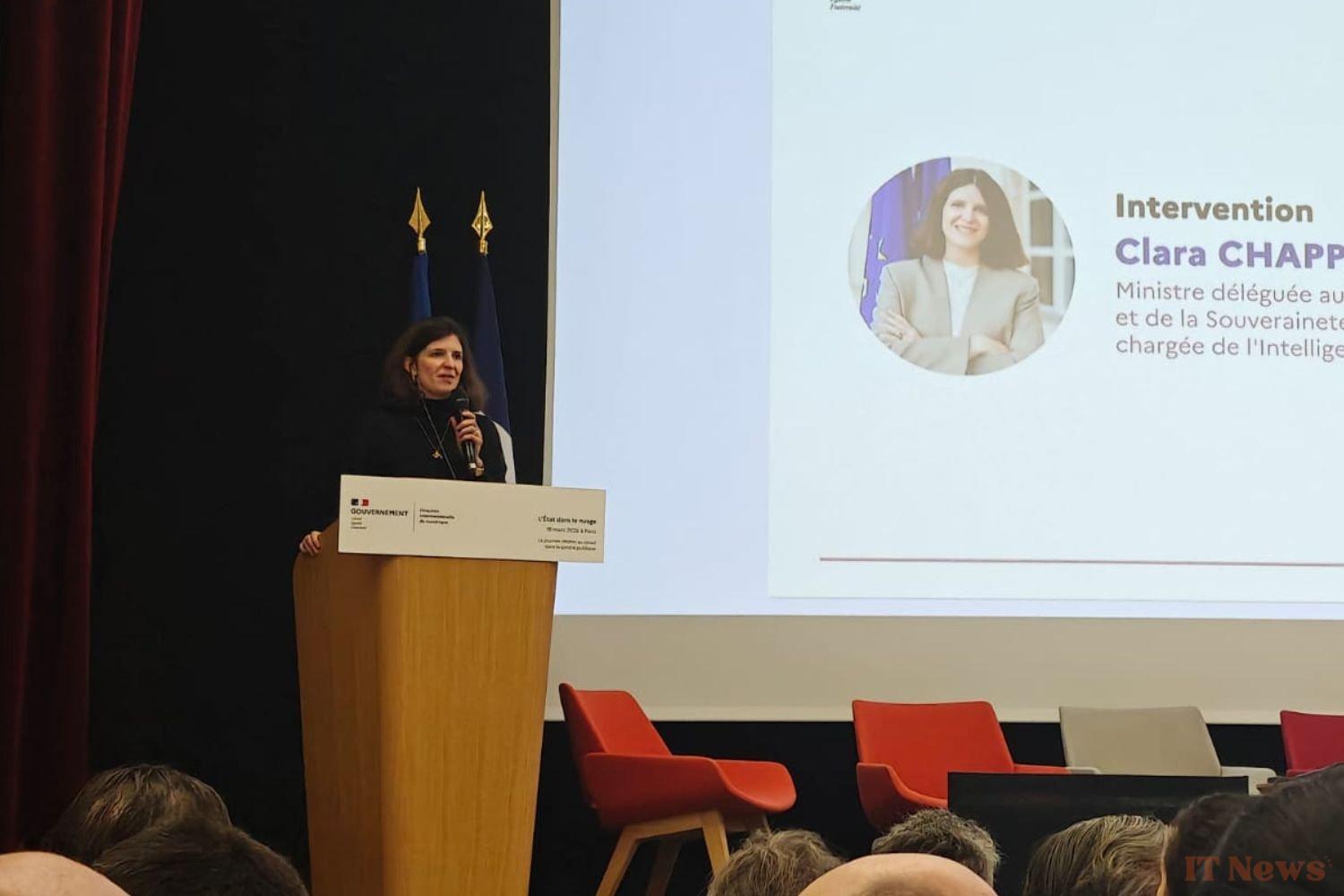Will the US geopolitical shift boost the order books of European cloud providers? Tuesday, March 18th, saw the major event for the French government's cloud: Dinum, the interministerial digital directorate, brought together public officials, suppliers, and companies working directly or indirectly on the cloud infrastructure of French ministries and the French government. The opportunity for Clara Chappaz, the Minister of AI and Digital Affairs, to return to "the geopolitical tensions" (with the United States) which have continued to permeate this third edition of the day dedicated to "the State in the cloud".
Unlike last year, when only "small steps" towards (digital) sovereignty were mentioned, the American geopolitical turnaround has changed the situation: the current context "forces us to question the sovereignty of data and their hosting", the minister acknowledged. Now, it is time to "accelerate our policy" to move towards "solid, efficient and sovereign (cloud) infrastructures," the politician declared before an audience of around 450 people.
"You turn over a trash can in a ministry, and you find Amazon? That's not true at all."
Overall, the cloud market, the infrastructure essential to generative AI, is still dominated by three American giants: AWS, Microsoft Azure and Google Cloud. But since June 2023, sovereign, strategic or particularly sensitive data must be hosted by providers labeled "SecNumCloud" (SNC), the highest cybersecurity label of the State. A certification that excludes American giants, because the label imposes immunity from foreign extraterritorial laws, including American ones.
This strategy (called the "cloud-centered doctrine") will be the subject of a report published next spring, indicated Stéphanie Schaer, head of Dinum. But already, this policy has helped direct public procurement (of cloud infrastructure) toward European players, sometimes labeled SNC. While a third of public cloud purchases are still made from American hyperscalers like Azure, Amazon, or Google Cloud, another third goes to SNC players, while the final third is managed by European companies (not labeled SNC).
Knowing that "within the "central State" (the ministries, editor's note), the footprint of American hyperscalers is almost zero," explained Vincent Coudrin, director of the inter-ministerial cloud project at Dinum. This is particularly because hosted activities, which are closely linked to the sovereign and therefore by nature highly sensitive, require SNC infrastructures. "It's also to kill the fantasy of: 'you turn over a trash can in a ministry, and you find Amazon, that's not true at all. You can turn over all the trash you want'", there is no Amazon, Vincent Coudrin emphasized.
The use of "European offers must no longer be taboo"
In total, public cloud orders reach 132 million euros (cumulative) with a growth of 50% in 2024. But this figure does not include software, it only concerns purchases made by the UGAP platform, the "generalist" public purchasing center in France. Overall, "too many orders still go to hyperscalers", regretted the Minister of Digital Affairs and AI. However, "our companies don't want subsidies, but contracts." To create "the conditions for economic sovereignty," it is necessary to "develop European cloud offerings," she declared, adding that the use of "European offerings must no longer be taboo."
An opinion shared by Stéphanie Schaer, head of Dinum. "It is at the European level that we can build and have competitive, state-of-the-art solutions for all users and agents." In parallel, "work and exchanges with European counterparts" are also underway. These discussions and projects aim to "make different secure infrastructures interoperable," specified the interministerial director of digital technology, particularly through digital commons and open source software.
For the Minister of AI and Digital Affairs, a real "change of perception" is sweeping through Brussels. A change that could have a decisive impact on the EUCS file, the future cybersecurity label that has been discussed for months within the EU, and whose discussions have been stalled until now. The 27 European countries have so far been unable to agree on whether or not to exclude American giants for the most sensitive and strategic data. France, which is campaigning for the adoption of a cybersecurity label similar to its SecNumCloud at the European level—and therefore for the exclusion of hyperscalers for the most sensitive data—has so far been unable to rally other countries to its position. But "things are changing, and I'm happy about that," declared the minister, for whom, from now on, "we must make the political choice for Europe."



0 Comments